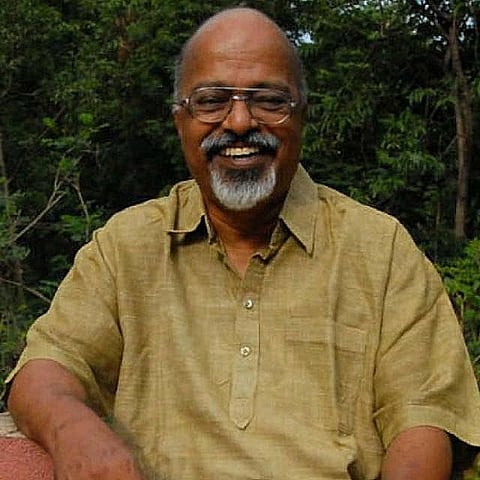PV Satheesh demystified science through Krishi Vigyan Kendra
Deccan Development Society’s Krishi Vigyan Kendra (DDS-KVK), located at Didgi Village near Zaheerabad in Telangana, became functional in the year 1993-94.
I joined DDS-KVK in February 1995 as a training associate and junior scientist and continued till November 2005. As a member of the core team of DDS-KVK, PV Satheesh encouraged us to think differently and understand the local wisdom from women and experts like local health workers / healers / shepherds / veterinary healers / tree and forest experts.
Under his able guidance KVK contributed to some of the historical research studies with full participation of local people and we, as scientists, added scientific dimension to their knowledge and wisdom, which were published by Indian Agricultural Research Institute and Food and Agriculture Organization.
When I joined KVK, he asked me to spend time with villagers, especially the Dalit elders and women and make notes of my observations. He personally trained me in participatory methodologies and slowly, I cultivated true respect for local people. My first document was Peoples’ Perceptions on Food and Nutrition which has opened many avenues to do real participatory research on local food systems not only at DDS–KVK but in many parts of the country.
He also encouraged me to sharpen my skills in writing in English as I was very shy of writing in the language because my entire schooling was in Telugu.
He was also instrumental in ensuring that the KVK campus was developed as a bio reserve of plants for more than 200 species, which included fruit trees, fodder trees and wild trees. The KVK farm is the seed hub for local food crop varieties (60-80), which were sourced from the Dalit women farmers.
The best part is the members of the scientific advisory committee (SAC) are Dalit women who are non-literate but filled with knowledge on all aspects of sustainable agriculture, cattle management and food systems.
On all occasions, local food (recipes) based on millets, dals, local oil seeds like niger, linseed, uncultivated greens and wild fruits are served at the KVK hostel. He used to insist that local culture, agriculture and cuisine should be radiated from KVK.
KVK is perhaps the only one which entirely focuses its activities on ecological forms of production, including organic farming, traditional seeds, germplasm conservation, women’s primacy in agriculture, including secure livelihoods for Dalit women as well as small and marginal farmers.
DDS-KVK stood very tall in the country. It focused on organic agriculture and people’s knowledge. DDS-KVK target population is also unique as it works with small, marginal and Dalit women farmers in a sustainable manner. The vision of KVK (Farm Science Centre) has been developed in consonance with the organisational ethos and philosophy of the host institution, the Deccan Development Society. This vision blends both the mandate of ICAR and the ideals of DDS.
KVK has taken a series of innovative steps through which it has tried to be a bottom-up link between farmers and the ICAR institutions. It has critically analysed, codified and documented farmers knowledge in biodiversity-based production systems, women’s role and contribution to agriculture, detailed studies on the economics of ecological agriculture, nutritional perceptions by farmers of their traditional crops and their comparison with the studies by National Institute of Nutrition, study of uncultivated foods, usage of farmers varieties in frontline demonstrations, and validation of ethno-veterinary practices and local grass species study as fodder for local milch animals.
In short, the Medak district KVK has truly acted as a people’s KVK, a role which many of the formal agricultural research institutions would have done well to take.
I think to continue my work with Dalit and marginalised communities, specially with women, will be the most fitting tribute I can pay to the best development professional and more importantly extraordinarily compassionate and a great visionary who thought ahead of his times for the empowerment of Dalit women.
B Salome Yesudas works with communities to strengthen their health and nutrition levels
Views expressed are the author’s own and don’t necessarily reflect those of Down To Earth


